Blockchain is on the rise in publishing and in the wider world, but it’s not yet clear exactly how it will be used to streamline the book publishing process or whose workflow it will most affect.
If you need a refresher on blockchain, read our recent introduction to blockchain to get a better sense of what blockchain is, plus some overall trends and predictions for how it might be used in the publishing industry. Some of the terms we use to describe these projects (like Ethereum, smart contracts, and blockchain itself) are explained in that introduction.
Below, check out some of the companies and collaborations who are already experimenting with using blockchain to make the publishing process smoother and more accessible.
Blockchain for Peer Review
Academic Peer Review

While academic publishing might not have a reputation as the most technologically-inclined part of an already-traditional industry, they have already gotten into the blockchain game. In 2018, Springer Nature, Taylor & Francis Group, and Cambridge University Press teamed up with this pilot project. With Blockchain for Peer Review, they hope to find ways of making the peer review process more transparent and streamlined, ultimately leading to more high-quality and trustworthy published research. The project uses an Ethereum-compatible blockchain to execute smart contracts. In September 2018, they released their proof of concept.
Publica
Author Advances and Digital Distribution
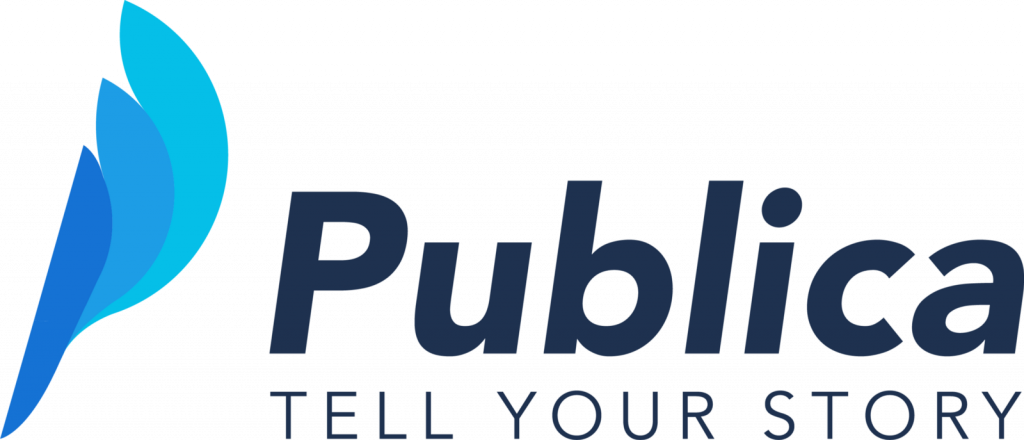
Winner of Digital Book World’s award for “Best Use of Blockchain in Publishing Technology” in 2018, Publica uses blockchain to fund and distribute books. Specifically, authors can raise funds to publish their book using an Initial Coin Offering, or an ICO. Learn more about ICO’s here. These are like pre-orders which end up also being the advance for the author. Once the author has finished the book, the investors will immediately be able to access to the title through a smart contract. In August 2018, Publica announced a partnership with publisher Morgan James.
Scenarex
Security, Traceability, Attribution, and Distribution
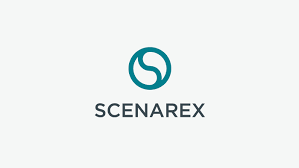
Scenerex’s Bookchain project allows authors and publishers to publish and distribute ebooks using blockchain and smart contracts. They call it a Digital Book Enabler. Like Publica, publishers and authors upload their titles to Bookchain. Then, publishers and authors can use smart contracts to configure the exact security settings for their file, as well as coordinate buying, reselling, and lending the title, all while keeping every file traceable. As of October 2018, Bookchain was launched in beta to publishers and authors.
Po.et
Creative License
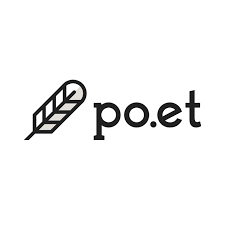
Po.et uses the the ledgers that are fundamental to blockchain to give creators and media organizations an overview of where content is and where it has been. The goal is to use the ledger to keep track of creative works to create a decentralized and trustworthy source for media. All pieces of content uploaded to Po.et would be time-stamped so that it’s clear how content is moving. For example, stock photos uploaded to Po.et would be traceable – everyone that uses them would be entered on the ledger, so the original creator could see where their photo ended up. Po.et is currently in the process of finding bugs, onboarding new users, and doing security checks. Keep up with their progress here.
Authorship
Professional collaborations

Authorship seeks to provide authors, publishers, translators, and readers a single platform to offer and avail each other’s services, while ensuring better compensation margins than the traditional publishing industry. Authorship uses site-specific tokens to conduct these transactions, which can then be converted to Ethereum and used off-site. Authors can upload their books to Authorship, at which point publishers can bid to publish the book either in print or in digital form. Translators can choose works on the site to translate, and then build their professional portfolio and earn money when their translations are bought and read. The project launched officially in June 2018, and as of Dec. 2018, 25,000 authors have signed up to use the service.
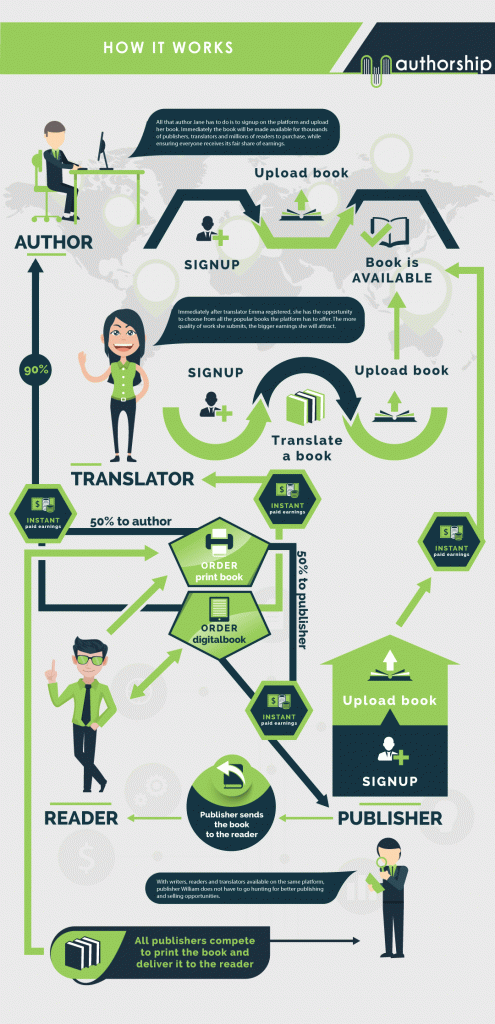
wespr
Incentivizing collaboration and engagement
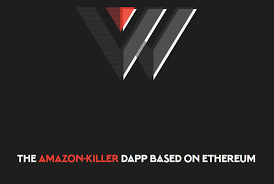
wespr is an Ethereum-based platform that seeks to help content creators collaborate and then equitably distribute the profits from their work. Then, it will incentivize engagement with that content with an in-site cryptocurrency token. Each work on wespr (for example, a book) is considered a Decentralized Autonomous Organization (DAO), which makes it easier for creators to collaborate. Different creators (for example, multiple authors, a translator, and an illustrator) working together on a single project. Every time a reader shares, comments on, or likes the content, both the reader and the creators are paid in on-site cryptocurrency called an Echo Token. These tokens are parceled out to creators according to the percentage of the content that they own, per the rules of their DAO. Their Twitter notes that their website is under construction, but if they do re-emerge, we’ll be watching!
Gilgamesh Platform
Shared site governance

Gilgamesh hoped to be a social information-sharing platform, where creators and users were incentivized with an in-site cryptocurrency token, powered by Ethereum smart contracts. Information on Gilgamesh would be protected by the blockchain, which its founders hoped would make for a more open spread of information on the site. We’re perhaps most interested, though, in the ways that users would have been able to use the cryptocurrency tokens they accrued within the site. One of the ways that tokens were set up to be spent is by casting votes on questions of site governance. The most active members would have a more active say in the ways that Gilgamesh functions. In March 2018, Gilgamesh didn’t meet its ICO target and the original funders were refunded. But, the site notes that Gilgamesh is currently under development. We’re certainly keeping an eye out for their next move.
smoogs
New payment model

smoogs uses Bitcoin to facilitate consumers paying for the content the are consuming as they are consuming it. So, instead of a model whereby a monthly subscription offers unlimited access, or a book costs a particular price, a reader on smoogs would only pay for the pages they read or the minutes they watch. The goal is to compensate creators for their work while not relying on ad revenue or gatekeepers like publishers. smoogs currently has two texts in beta testing, including Revenge by Xavier Robinson.
INK
Global Content Ecosystem

INK hopes to create a decentralized community of global creators, including authors. Authors can upload content, claim ownership of it through the blockchain, and distribute it to readers without going through a publisher, while retaining the profits. Investors can fund authors through in-site tokens, giving authors access to funding at an earlier stage than in traditional publishing. Based in Singapore, INK’s focus is truly global. With money from venture capital firms like Fenbushi Capital, Node Capital, and SAIF Partners, INK looks to be a major Asian-based blockchain power.
Pando Network
Crowdsourcing content and infrastructure
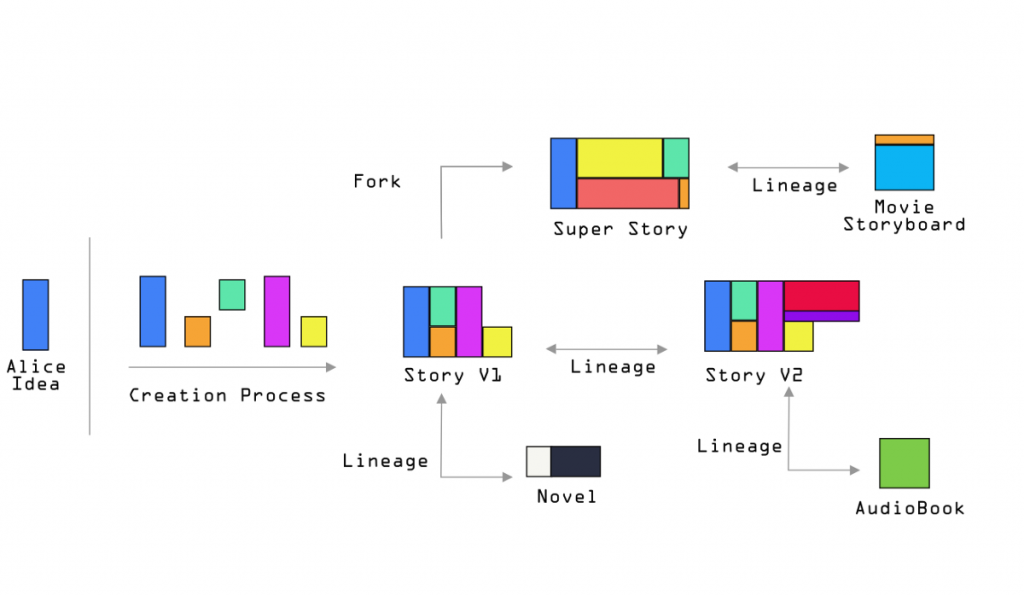

Pando Network is trying to rethink, in the broadest terms, how to restructure our relationships to texts. Pando wants to decentralize literature – they want to take the major decisions that determine what gets published and what gets press out of the hands of the few tastemakers at the top (editors, awards committees, etc.) and bring it to the masses. Much of their work is still speculative, but according to their Medium post, “Decentralized Autonomous Literary Organization: a decentralization of literature,” they are interested in building new relationships between readers, writers, and the infrastructure (the publishing industry) that connects them. While most blockchain companies tackling publishing are looking to solve particular issues within publishing, Pando is looking at how to build a new, and more equitable infrastructure that’s different from the vertical structure of traditional publishing (author → agent → editor → marketing team → booksellers/librarians/media → reader) and the mind-bogglingly open field of Amazon. Right now, their only website presence outside of Medium & Twitter is Github, the software development platform.

One thought on “Publishing’s early blockchain adopters”